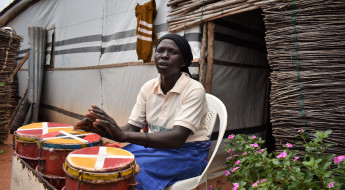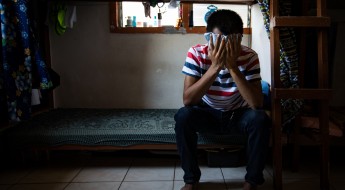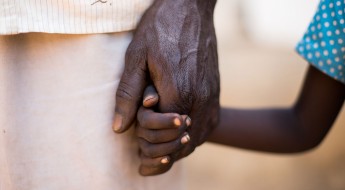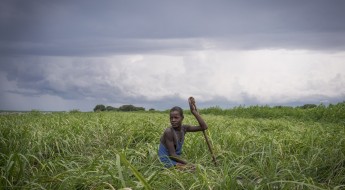Forced to flee or left behind: The struggle for survival in Yambio, South Sudan
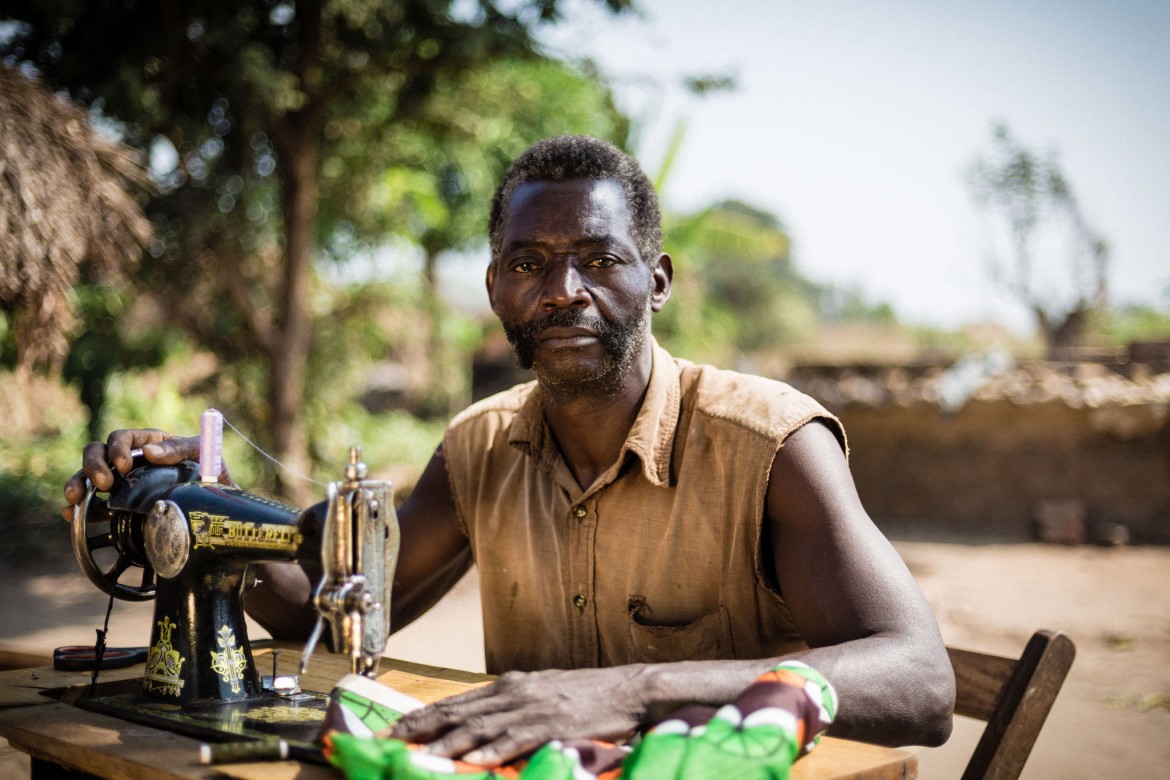 JohnDisplaced by fighting from their village, John and his family are now living in the town of Yambio. The Equatorias region is renowned for its agriculture and John used to grow beans, okra, potatoes and oranges in his farm. Besides farming, he was a tailor. These activities provided a good income for the family and he could afford the schooling for his nine children. Now the farm is out of reach, on the other side of the frontline. John managed to bring his sewing machine with him, but it was damaged on the road and he doesn’t have spare parts to repair it. “Besides I can’t compete with the tailors in town. People here don’t know me so I hardly get any customers,” he says. John and his elder sons, who had to leave school, are supporting the family by doing odd jobs: collecting firewood, making bricks, and working as daily workers. John tries to get to know the local people so he can get more work. Unaccustomed to the life in town, he dreams of returning to his village.CC BY-NC-ND / Alyona Synenko / ICRC
JohnDisplaced by fighting from their village, John and his family are now living in the town of Yambio. The Equatorias region is renowned for its agriculture and John used to grow beans, okra, potatoes and oranges in his farm. Besides farming, he was a tailor. These activities provided a good income for the family and he could afford the schooling for his nine children. Now the farm is out of reach, on the other side of the frontline. John managed to bring his sewing machine with him, but it was damaged on the road and he doesn’t have spare parts to repair it. “Besides I can’t compete with the tailors in town. People here don’t know me so I hardly get any customers,” he says. John and his elder sons, who had to leave school, are supporting the family by doing odd jobs: collecting firewood, making bricks, and working as daily workers. John tries to get to know the local people so he can get more work. Unaccustomed to the life in town, he dreams of returning to his village.CC BY-NC-ND / Alyona Synenko / ICRC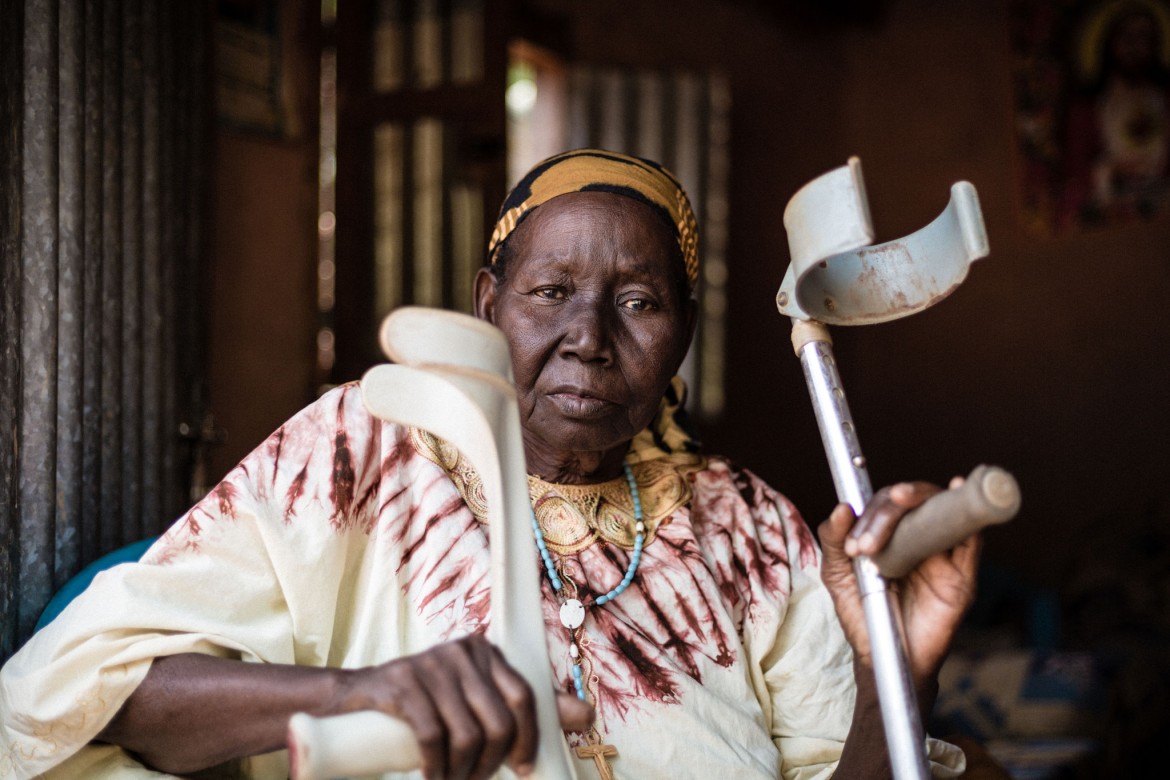 AntoninaA retired teacher, Antonina lived with her daughter and three grandchildren. Then fighting broke out in town. “We heard the shooting and people started to run. I told my daughter to take the kids and run away with them. Of course, on my crutches I couldn’t follow.” Two months went by without any news. “Every day I try to imagine how life is for them now. I don’t even know where they are.”CC BY-NC-ND / Alyona Synenko / ICRC
AntoninaA retired teacher, Antonina lived with her daughter and three grandchildren. Then fighting broke out in town. “We heard the shooting and people started to run. I told my daughter to take the kids and run away with them. Of course, on my crutches I couldn’t follow.” Two months went by without any news. “Every day I try to imagine how life is for them now. I don’t even know where they are.”CC BY-NC-ND / Alyona Synenko / ICRC PeninaPenina is blind. Neighbours used to take care of her by bringing food every day. When fighting broke out, people fled. Until now many houses remain empty. “People who used to help me did not come back. I now try to pick cassava leaves and cook my own meals, but it is hard to manage.”CC BY-NC-ND / Alyona Synenko / ICRC
PeninaPenina is blind. Neighbours used to take care of her by bringing food every day. When fighting broke out, people fled. Until now many houses remain empty. “People who used to help me did not come back. I now try to pick cassava leaves and cook my own meals, but it is hard to manage.”CC BY-NC-ND / Alyona Synenko / ICRC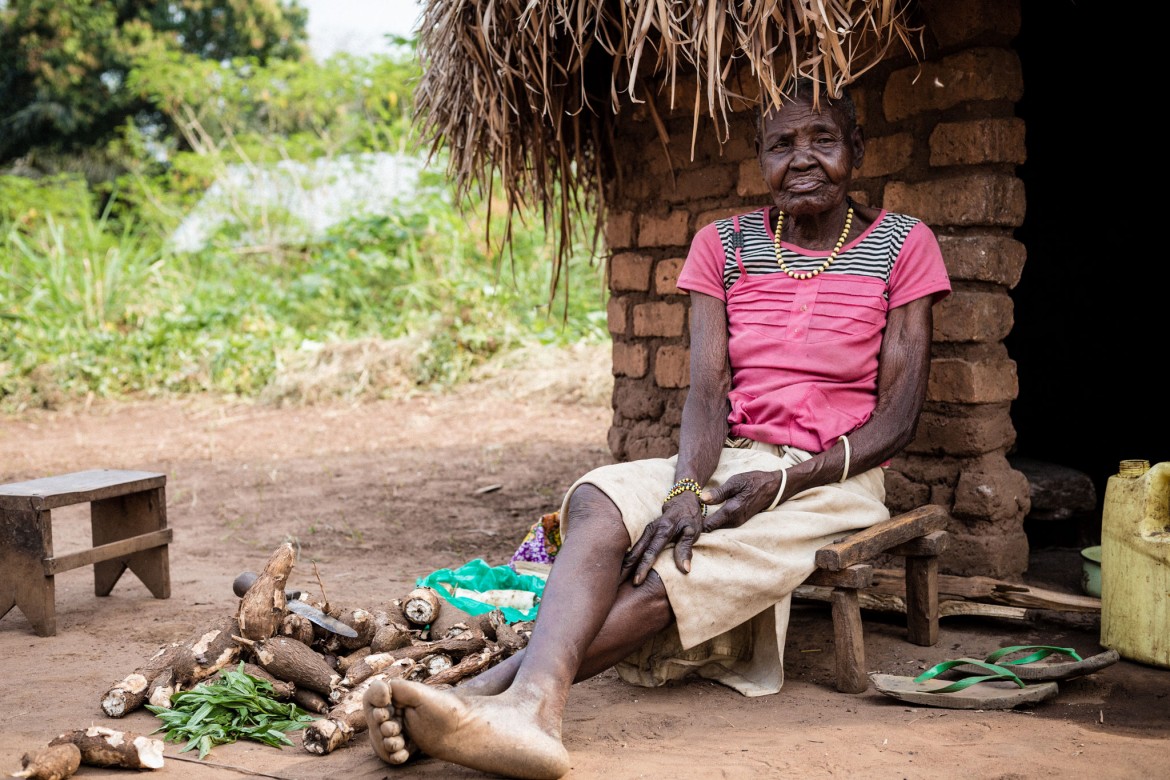 AngelinaAlthough not sure of her age, Angelina has reached the stage of life when living alone has become very difficult. She used to receive a lot of support from her neighbours. “People would always bring me money and food.” When clashes emptied the neighbourhood, she stayed on her own. “I prayed that people would come back. I thought I would die here alone. They are now slowly returning, but many houses are still empty.” Angelina tries to cultivate her own parcel of land, but at her age physical work is hard. “I left very early this morning and it took me all day to go to the field and bring some cassava so I can have a meal.”CC BY-NC-ND / Alyona Synenko / ICRC
AngelinaAlthough not sure of her age, Angelina has reached the stage of life when living alone has become very difficult. She used to receive a lot of support from her neighbours. “People would always bring me money and food.” When clashes emptied the neighbourhood, she stayed on her own. “I prayed that people would come back. I thought I would die here alone. They are now slowly returning, but many houses are still empty.” Angelina tries to cultivate her own parcel of land, but at her age physical work is hard. “I left very early this morning and it took me all day to go to the field and bring some cassava so I can have a meal.”CC BY-NC-ND / Alyona Synenko / ICRC
In recent months, intensified violence in the Equatorias region of South Sudan has forced thousands of people out of their homes, tearing families and communities apart. While some were uprooted and are struggling to adapt and survive in unfamiliar places, others were left behind to cope on their own.

